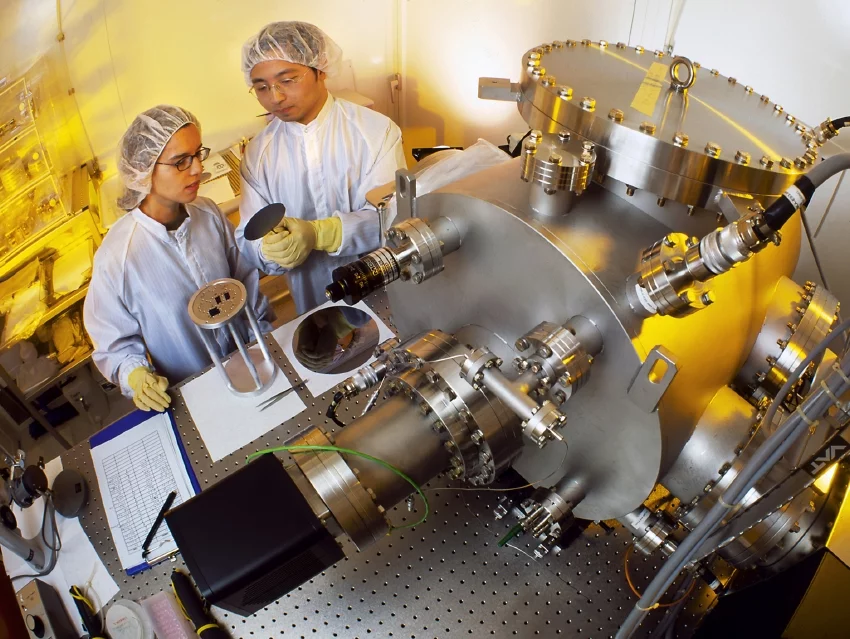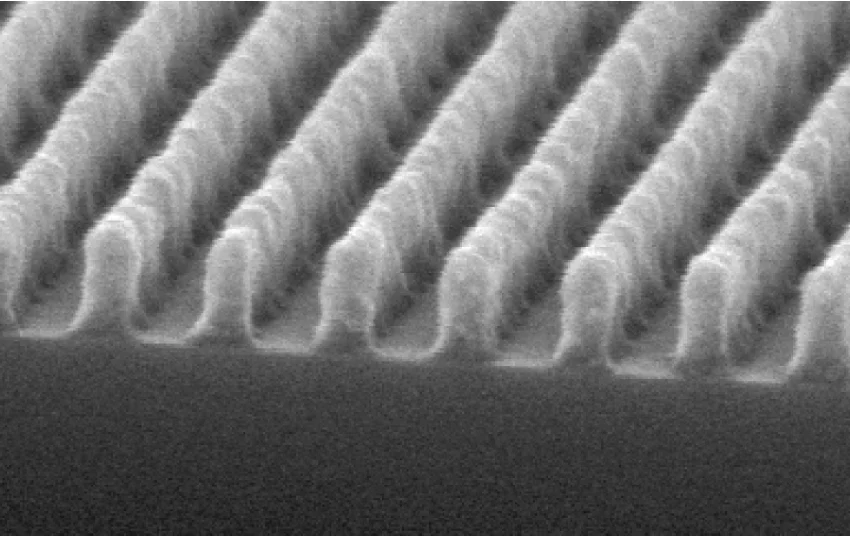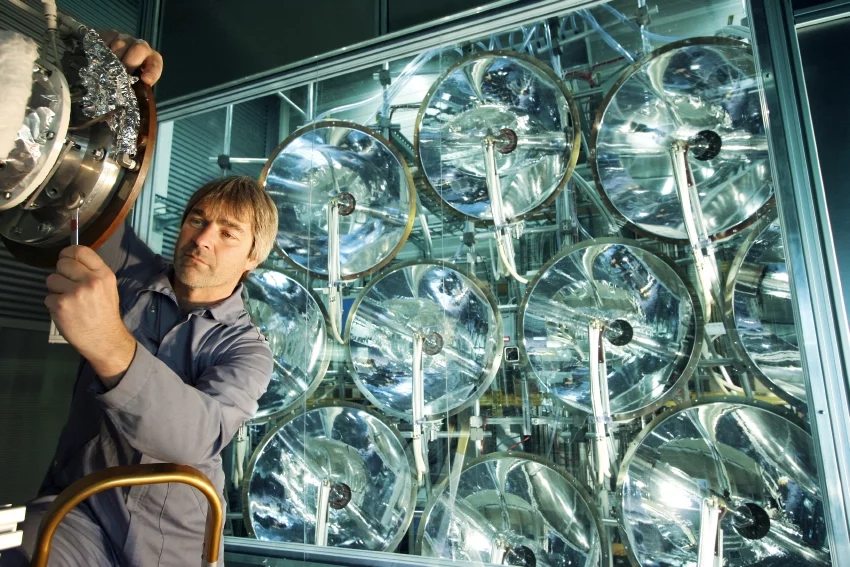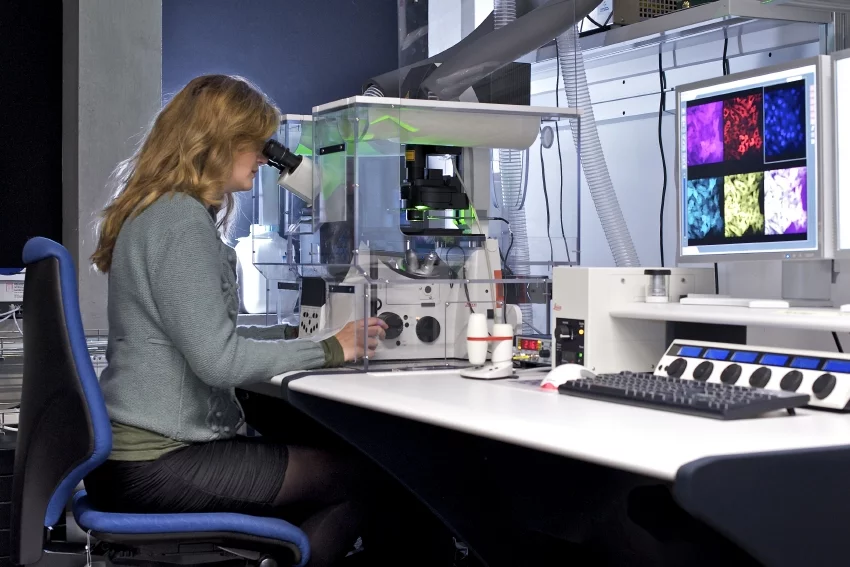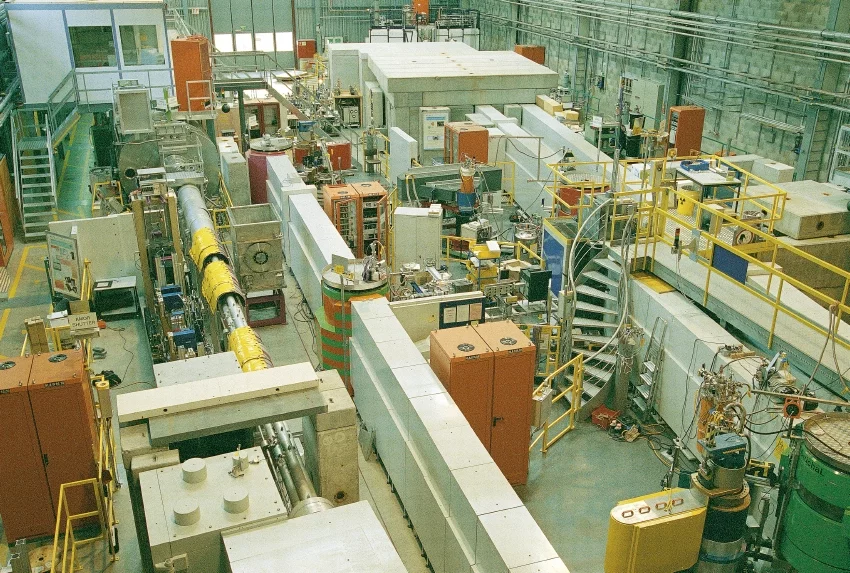PSI hosts most of the national large research infrastructures in Switzerland, many of which have unique characteristics or are unique facilities on an international scale. PSI is one of two unique sites in Europe that provides all three major probes (photon, neutron, and muon) for materials research at large research facilities. PSI disposes of outstanding competence in design, construction, and operation of large research facilities. The synchrotron light source (SLS), the Swiss X-ray free electron laser (SwissFEL), the Swiss neutron source (SINQ) and the Swiss Muon Source (SmµS) are used by more than 2'600 users approximately equally from Swiss and international (predominantly EU) academics and industries. Several beam lines and instruments at PSI have been jointly created and/or are jointly operated with national and international research partners.
The SwissFEL started user operation in 2019 with its hard X-ray branch, while its capabilities are ramped up and further developed in parallel, establishing its position in the international landscape of ultrafast X-ray science. In parallel, the soft X-ray branch of SwissFEL is under construction, with commissioning starting in 2020. Without doubt SwissFEL is attracting much attention from the scientific community but also is going to boost trans-national 'brain-circulation' within this rapidly evolving field of research. The resulting scientific environment is not only highly vitalizing for those PSI-FELLOWS being directly involved in research programmes at these facilities but moreover will positively inspire the entire PSI-FELLOW programme.
4 Grand Themes
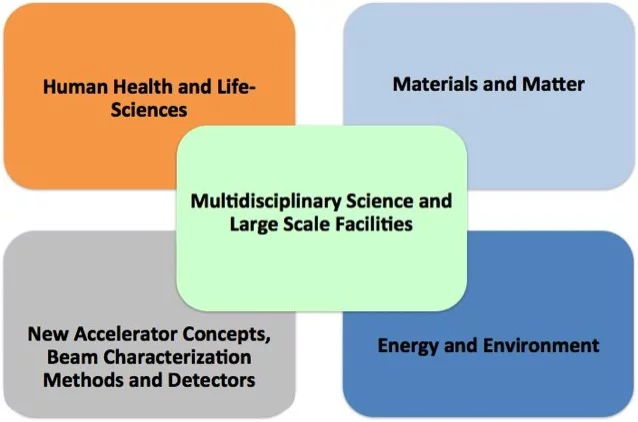
Materials and Matter
Research on materials and matter at PSI is concentrated around the institute's large research facilities and incorporates both:
(i) structure and dynamics of advanced materials, and
(ii) fundamental properties of elementary particles and interactions. Particle physics research pursued by PSI is looking at some of the most fundamental open issues in our understanding of basic constituents of matter and forces between them. Advancements in technology coming from this field can often be transferred to other areas of research.
Material science at PSI is conducted in order to understand the mechanisms of materials with novel and exotic properties with potential technological applications in the mid- and long-term, and as an enabling-science for other research fields studied at PSI. In the latter case acquired knowledge is applied towards multidisciplinary goals of exploring, e.g., more efficient means for the production, storage, and transport of energy or information, or more refined or entirely new diagnostic tools in both natural and life sciences, etc
Energy and Environment
Energy research performed at PSI is focused on processes that can be used in sustainable and safe technologies for the supply of energy with - ideally - zero CO2 emission. The main emphasis is on the development of processes for the utilization of renewable energy sources, low-emission conversion of energy and the safe application of nuclear energy. These activities are supplemented by analyses giving a comprehensive assessment of energy systems. PSI is also active in research on the environment, studying the chemical composition of the atmosphere and the processes that take place within it. In addition, PSI runs the Competence Centre for Energy and Mobility (CCEM) of the ETH Domain.
Health and Life-Sciences
In the area of Human Health and Life-Sciences, several research groups at PSI are engaged in the study of fundamental questions regarding biology and cancer therapy. The focus of research on fundamental biological issues is on the determination of the structure and function of proteins. Apart from using traditional biochemical and biophysical methods to explain protein structures, research is also being performed using synchrotron light at the Swiss Light Source (SLS) at PSI. As far as application-orientated research is concerned, researchers are focusing their attention on the diagnosis and therapy of cancerous diseases. In collaboration with university hospitals, they are concentrating on methods of tumour diagnosis and treatment where PSI's particle beams are most beneficial. Proton beam therapy for cancer and the development of modern radiopharmaceuticals for the diagnosis and treatment of tumours are part of this scientific area.
Accelerator Concepts, beam characterization method, optics and detectors
Maintaining the world leading position of the PSI accelerator-driven large research facilities requires the continuous development of new accelerator concepts, modern beam characterization/control, optics and state of the art detectors. PSI performs forefront research towards further development of its existing and planned facilities and also contributes with internationally renowned technologies and know-how in other national and international research infrastructure projects.

